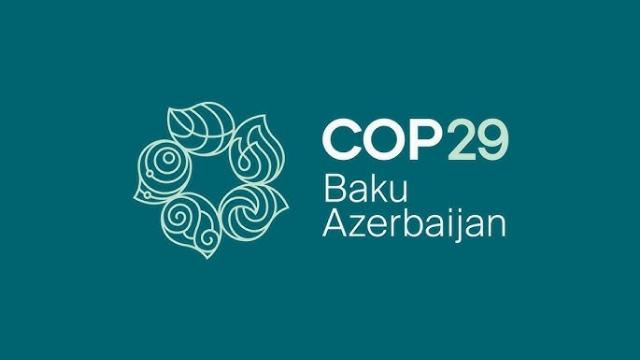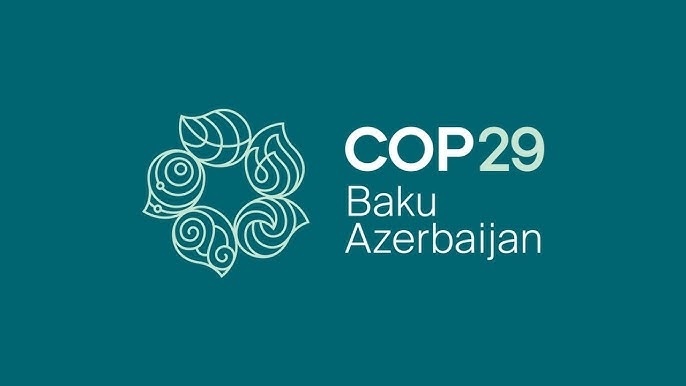

COP 29
Donald Trump throws a spanner into the "climate community's" machinations involving global warming.No matter how big China’s economy becomes and how outsized Russia’s influence on geopolitics has grown, the United States is still the straw that stirs the drink on climate policy.
An article published in the Japan Times about uncertainty concerning the outcome of the U.S. elections has brought the pre-conference negotiations and planning that usually take place in the runup to the U.N.’s annual climate extravaganza, the U.N. Conference of the Parties to the Framework Convention on Climate Change, to a virtual standstill. COP 29, to be held in Baku, Azerbaijan, is less than two months away, but despite the overall theme of “climate finance” having long been agreed to, normal discussions of topics and the framework language for the finance agreement has stalled.
Negotiations have gotten bogged down, in large part because the payor countries are uncertain what the United States will do if Donald Trump is reelected president. The United Nations and most developing countries have argued over the years that the United States, as the biggest source of historical carbon dioxide emissions, should pay the most for climate reparations, mitigation, and adaptation.
It hasn’t worked out that way under any administration so far, and Trump was the most recalcitrant on this point.
Trump continues to refer to climate change as a “hoax,” on the grounds that China and other economic and geopolitical adversaries and competitors are using the issue as a backdoor means of diminishing the United States, harming its economy, and reducing its influence globally.
In keeping with that belief, Trump cut climate funding and programs, reprioritized policies to advance America’s interests over those of the “global community” concerned about climate change, implemented policies to unleash American energy dominance, and withdrew the country from the 2015 Paris climate agreement.
If Trump is reelected president, COP 29 negotiators fear, probably rightly, that he will undercut the Biden administration’s commitments to emission reductions while decreasing America’s existing funding for various UN climate slush funds.
“The prospect of Donald Trump returning as president is hanging over crucial U.N.-sponsored climate negotiations, with countries ‘holding back’ their positions until they know who sits in the White House,” writes the Japan Times. “With just two months to go, there still isn’t an agreed definition of ‘climate finance’ let alone how much should be paid, which countries should receive it and how, and who should be on the hook for it.”
Clearly, other developed nations can move forward with trillions of dollars in climate commitments without the United States participating, but no one wants to <img alt captext="COP 29” class=”post-image-right” height=”253″ src=”https://conservativenewsbriefing.com/wp-content/uploads/2024/09/elections-matter-to-u-n-climate-negotiations.jpg” width=”450″>go first or be committed to spending scarce resources on a plan that the United States is not also committing money to. Doing so would place them at a competitive disadvantage, something they won’t do, even, evidently, at the risk of destroying the planet, which is what they claim is at stake without action.
This problem for COP 29’s negotiators is further complicated by the recent widespread grassroots rejection of various climate policies in European Union (EU) countries, reflected in protests and electoral gains by climate realists and the replacement of presidents and prime ministers, both in member states and in the European Parliament.
In the EU, right-of-center parties, some relatively newly arrived on the scene specifically in response to costly climate initiatives, have gained representation in various countries’ parliaments, some as the largest or at least the swing vote party, and where right-of-center leaders have come to power. One of the common policy threads through all these right-wing gains and victories is a rejection of the extreme climate commitments and policies imposed in response to past COP agreements. Nations have rolled back several climate crisis taxes and technology mandates, and are blocking new proposals.
Recently, for example, after an invited presentation by The Heartland Institute president James Taylor to members of parliament, the EU defeated legislation mandating the European Union get to net-zero carbon dioxide emissions by 2050. Before Taylor’s speech and discussions, the proposal had been fast-tracked for approval.
Even the extreme, green, virtue-signaling government of our neighbor to the north is feeling the heat for pushing too far, too fast on extreme climate policies. The Trudeau government lost its ruling coalition partner when Jagmeet Singh, leader of Canada’s New Democratic Party (NDP) withdrew from the governing coalition. The NDP’s support had been crucial to Trudeau’s climate initiatives, which have raised prices and killed jobs. The increasing backlash against these policies led Singh to end the NDP’s coalition agreement. In addition, rising costs related to Trudeau’s climate policies have led to a resurgence of the Conservatives, with the ruling Liberals losing previously safe seats and polls showing the Liberals currently 20 percentage points behind the Conservatives if elections were called today.
The Conservative Party is pushing for a national carbon tax referendum, which if brought before the voters and adopted, could upend all of Canada’s domestic and international climate commitments.
COP 29 will still be held. After all, the ruling elites and bureaucrats will not forego their luxury junket to Baku — it’s the event of the season — but with turmoil roiling in the West, it is unclear whether much will be accomplished other than the spewing of a lot of hot air from the attendees and carbon-dioxide emissions from their private jets and gas-guzzling SUVs.
H. Sterling Burnett, Ph.D., ([email protected]) is the Director of the Arthur B. Robinson Center on Climate and Environmental Policy at The Heartland Institute, a non-partisan, non-profit research organization based in Arlington Heights, Illinois.
Image: COP 29





